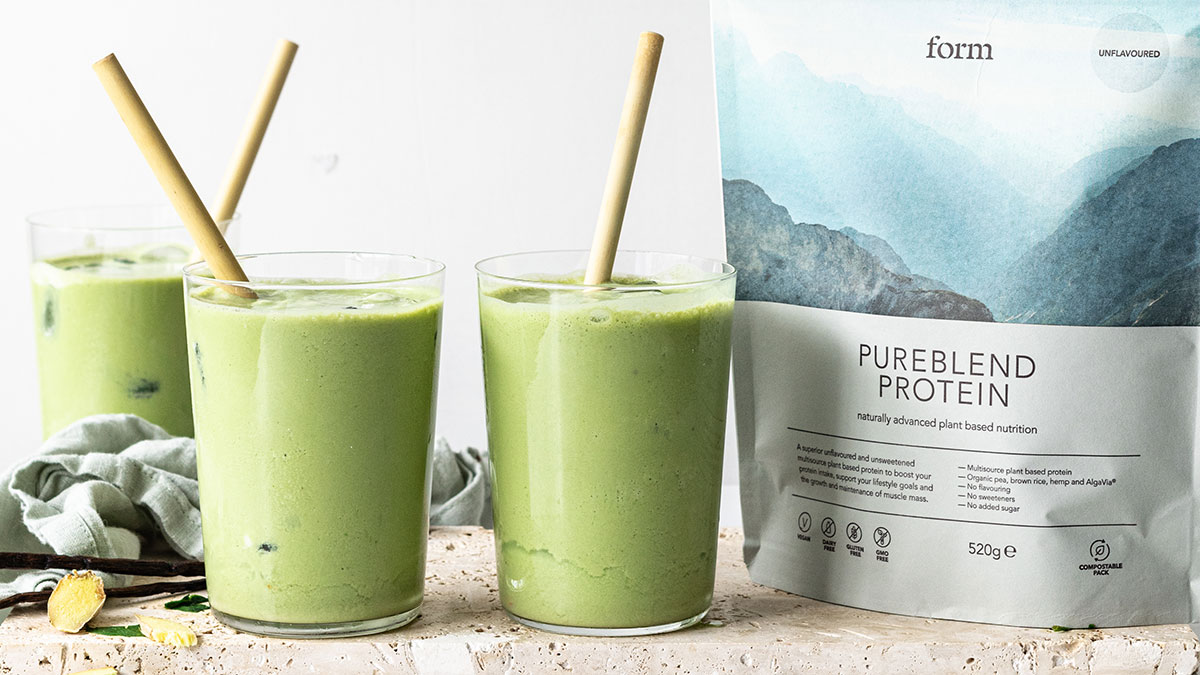How to Get Healthier, Shinier and Fuller Hair, According to a Trichologist

After a winter of icy temperatures and non-stop central heating, you can expect your hair to need some TLC. Whether you’re dealing with a thinning ponytail, limp locks or a multitude of split ends, there’s no shortage of hair woes that can leave you trawling the internet for solutions.
According to experts, healthy hair is a combination of a number of factors: good nutrition, genetics, solid lifestyle habits and avoiding harsh styling tools and dyes that can strip our hair of its protective outer layer.
To help you damage-proof your hair for the season ahead, we’ve gathered a handful of science-backed tips for healthier, shinier and less breakable strands.

Eat more protein
When it comes to your hair, you are what you eat. Studies have found that eating a balanced, fibre-packed diet provides your body with the all-important macro and micronutrients needed to support optimum hair growth.
In particular, protein is essential for adding extra inches to your scalp. This vital macronutrient is made up of amino acids; building block compounds that help the body to repair tissue and perform growth functions, including hair.
Most adults need around 0.75g of protein per kilo of body weight per day, although recent research published in the Journal of Nutrition, Health and Ageing suggests that many adults are not consuming enough.
While your first port of call should always be improving your diet, by upping good protein sources like edamame, tofu and beans, starting your day with a protein shake like Form’s Pureblend Protein can help to ensure your levels are always topped up.
Try a supplement
“Hair is a dispensable tissue as it isn’t needed for physical survival,” says Anabel Kingsley, brand president and consultant trichologist at Philip Kingsley.
“This means nutrients are first used to keep essential cells functioning, with hair receiving them last. Even small dietary inadequacies can impact hair, and long before they disrupt your general health,” she adds.
Currently, there’s a whole swathe of supplements on the market that claim to aid with hair health, and it can be difficult to know what’s worth your money.
Beyond eating a balanced diet that has a good balance of fat, carbohydrates and protein, your best bet is to look for a product containing key nutrients like vitamins A, C and E, which studies have found play an important (but not entirely clear) role in reducing hair loss.
We recommend adding Form’s Radiant capsules into your morning supplement routine. Combining vitamins A, C and E, as well as vegan collagen, they can replenish missing dietary vitamins that improve the health and integrity of your hair.
Avoid heat styling
When you’re subjecting your strands to hot tools like straighteners and hairdryers on a daily basis, the damage can quickly show up.
High heat can alter the keratin structure of the hair, causing it to weaken and break over time. The result? Dry, brittle and moisture-parched hair that feels rough and stringy to the touch.
“Hair is a robust and impressive tissue, but it has limits,” stresses Kingsley. “Once a strand has grown from your scalp, it lacks the ability to regenerate itself like your skin does. So, you won’t be able to return it to its original, undamaged state.”
If you can’t part with your heat tools, she recommends using a protectant spray before styling, and keeping temperature at the lowest range possible to minimise damage in the long-term.

Take care of your scalp
In recent years, there’s been a shift towards prioritising scalp health, which many people forget to pay attention to.
“Our scalp is an extension of the skin on our forehead, and just like the skin on our face, has a skin barrier which helps to protect and keep it healthy,” says Kingsley. “If your scalp is not clean and healthy, it simply will not produce hairs of beautiful, strong quality.”
As each hair strand grows from an individual follicle on the scalp, experts say that it’s important to keep these points of exit clean and healthy – otherwise excess dead skin and sebum (the name for our natural hair oil) can obstruct quality hair growth.
Itching, flaking and irritation are all signs that your scalp needs extra attention. Switching out chemical-laden hair products for natural formulations and using a gentle exfoliant once or twice a week can help to clear built-up scalp debris, and soothe any lingering inflammation.
“Frequent shampooing is a good thing for your scalp health and your hair health,” adds Kingsley, “so try to leave no more than two days between shampoos.”
Don’t brush hair wet
While there’s no better feeling than running a comb through freshly washed hair, experts say your locks are in their most vulnerable state when wet, so brushing fresh out of the shower can pull, stretch and snap the strands unnecessarily.
The solution? “Detangle before you wash your hair,” says Kingsley, and hold off brushing again until you’ve blow dried your hair on a cool setting. This way, you can avoid adding unnecessary breakage to the hair.

Add moisture back into the mix
When hair is stripped of its natural moisture, it can appear frizzy, fried and be difficult to tame without harsh heat tools.
Dry hair can happen for a number of key reasons, including bleach, heat styling, weather and harsh shampoos.
As well as opting for a hydrating conditioner, try pre-treating your hair by ‘slugging’ it with moisture-rich oils or masks the night before before you wash it. It’s a good idea to opt for a clarifying shampoo to remove any product build up, so you can keep your scalp healthy and grease-free between treatments. A leave-in conditioner spray can also help lock in moisture between washes.
Finally, if you’re experiencing major breakage or hair loss, it’s worth consulting a dermatologist or trichologist for an evaluation. Beyond lifestyle choices, hair loss can be driven by hormonal changes, ageing, stress and autoimmune diseases, so it’s worth getting your scalp checked out to pinpoint the root cause.
A qualified professional can then suggest the best course of treatment to help restore and replenish lost hair health.


















